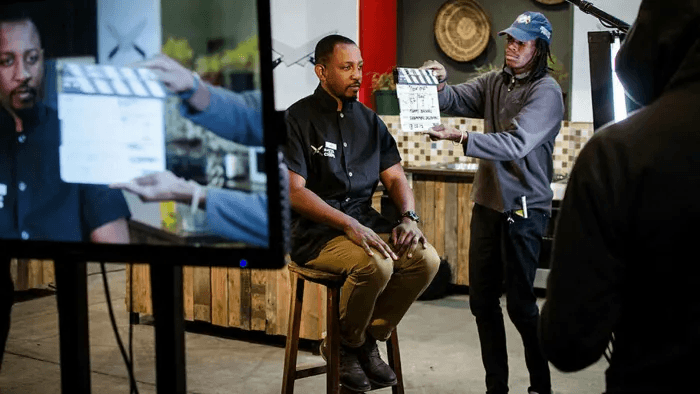It is an optimistic tale that reflects “Cook Off” production in the midst of power cuts and extreme financial constraints, achieved in 2017 on an initial $8,000 (€6,400). The Netflix launch this month’s collection as the nation continues to struggle against spiralling inflation, deep political differences, and a coronavirus lockout that makes Zimbabwean lives more difficult. Despite the abundance of talents in the industry, only a handful of films have been made in the country since the turn of the millennium.
Read more: Blood and Water Season 2: Netflix Original Drama releasing dates
But Cook Off battles the odds of awarding film festivals before gaining Netflix ‘s attention, with an all-Zimbabwean cast of young stars, industry veterans and renowned figures in music, comedy, and poetry Cook Off stars Tendaiishe Chitima as Anesu, and Tendai Ryan Nguni as well as Tehn Diamond, the leading hip-hop artist, as Prince, who meet on the scene of a cookery competition.
The initial budget was $8,000, in a country that had to face frequent power cuts and other shortages where raising this kind of cash from the bank is very difficult. 3 years later, the romantic comedy of Zimbabwean, Cook-Off, is a powerful illustration of how US online streaming giants expand in Africa to license or produce content which challenges regional stereotypes.
Three years later the carousels of millions on Netflix. But the film offers the viewer a different side of the Südafrika than the political crisis and financial turmoil, with its faithful representation of the suburbs in Harare, the home-grown Zimbabwean soundtrack, and the narrative built around a reality-TV kitchen show.
The increase in original African programming on Netflix reflects how most of their content budget has been changed to self-producing or third-party originals, which analysts are estimating to be about $17 bn this year in order to overcome producers like Disney who are launching their own streaming services.
Simultaneously, Africa emerges itself as a streaming market. Netflix, which has only recently begun disclosing regional subscriber growth numbers, does not specify the 58-million-customer portion of sub-Saharan countries in Europe, the Middle East, and Africa, which comprises its 2nd major market. According to a Digital TV Research industry forecaster, African streaming will achieve revenues of 1.2 billion dollars before 2025, six times greater in 2019.
Netflix alone is predicted to have roughly 5.7 m African subscribers by mid-10th. Most big foreign streaming rivals of Netflix are still not operating in Africa. Showmax, owned by the South African MultiChoice Pay-TV Empire, is the largest local streaming service. Investment in local content is also growing. In South Africa, a standalone Showmax subscription costs R99 ($5.80) a month, the same as for a country ‘s basic Netflix plan.
The predominance of traditional pay-TV is because any streaming network has to face significant variations in the speed and costs of data on the continent and a shortage of fixed broadband. In Ethiopia or The Democratic Republic of Congo, a 5-gigabyte film may take 12 to 14 hours for download, compared with just over 11 minutes, according to the United Nations Economic Commission for Africa.




